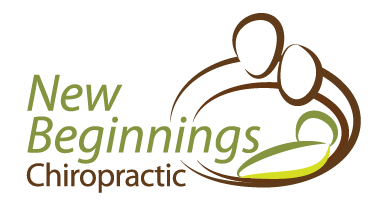Sniffling, sneezing and coughing are typically the signs of a cold coming on; but for those who have a family member that struggles with seasonal allergies, you know that’s not always the case. Often times, those itchy eyes area sure sign that allergy season is coming and with it the head congestion associated with an allergic response. Of course, it doesn’t have to be that way; while the allopathic community says that allergies are incurable and only manageable, there’s more to the story.
What are Seasonal Allergies?
According to the American College of Allergy, Asthma and Immunology, seasonal allergies, like other allergies, develop when the body’s immune system becomes sensitized and overreacts to something in the environment that typically causes no problem in most people. Typical airborne allergens include pollen, dust, mold, pet dander and smoke (either cigarette smoke or that produced by burning paper, chemicals or waste products). When exposed to an allergen, the body triggers the immune system to go into action. The immune system cells, known as “mast cells”, release a substance called histamine that attaches to receptors in blood vessels causing them to enlarge. Histamine also binds to other receptors causing redness, swelling, itching and changes in secretion.
While “allergy season” is considered to be in the Spring (flowers blooming and pollination) the truth is that tree, grass and plant pollination happens throughout the year and, depending upon the allergy, can cause symptoms all year long. Not only are allergies affected by what is being pollinated, but there are climate factors that can influence the severity
of the symptoms, these include:
•Tree, grass and ragweed pollens thrive during cool nights and warm days
•Molds grow quickly in heat and high humidity
•Pollen levels tend to peak in the morning hours
•Rain washes pollen away, but pollen counts can soar after rainfall
•On a day with no wind, airborne allergens are grounded
•When the day is windy and warm, pollen counts surge
•Moving to another climate to avoid allergies or airborne allergens
Those with seasonal allergies know it is impossible to find a climate with no airborne allergens
What are the typical treatments?
Typically, a medical doctor is going to be focused on relieving the symptoms, not getting to their source, and so will generally recommend over-the-counter allergy medications. For the child, a pediatrician will commonly suggest diphenhydramine, sold under the brand name Benadryl.
Before following this advice consider the side-effects associated with this chemical: dryness of the mouth, nose and throat; drowsiness; disturbed coordination; upset stomach; dizziness; chest congestion; and headaches. In some cases, these can even include: heart palpitations or increased heart rate; blurred or double vision; hyperactivity or excitability (especially in children); or nervousness or anxiety. Parents should also be aware, before giving this drug to a child, that this same chemical is used in most over-the-counter sleep aids, including Tylenol PM. The most popular recommended over-the-counter for adolescents and adults is cetirizine HCL, sold under the brand name Zyrtec. This drug is taken to provide temporary relief of runny nose, sneezing, nasal stuffiness and itchy or watery eyes associated with common inhalant allergies. However, the side-effects from this chemical include drowsiness, tiredness, dry mouth and stomach
Dr. Thompson Keeps You Informed
When exposed to allergens, the body triggers the immune system to go into action.
there are always healthier choices than over-the-counter chemicals, including the following:
•Essential oils – peppermint, basil, eucalyptus, lemon,and tea tree oil are the top 5 essential oils when, dealing with allergies (
•Vitamin C – taken daily can block the histamine that causes the allergy symptoms
•Apple Cider Vinegar – this most popular home remedy should be taken as 2 tbsp Apple Cider
Vinegar, mixed with 4 oz of water and 1 tbsp ofnatural honey up to three times a day
•Raw Honey – 2 tbsp of natural, local honey up to three times a day has been known to relieve
allergy symptoms
•Bromelain – this pineapple extract decreases theinflammation associated with allergies
•Zinc – helps control inflammation in the respiratory tract and supports proper immune function
One of the primary benefits of home remedies, as opposed to over-the-counter drugs, is the absence of chemicals in the body that may create their own problems in side effects.
The Chiropractic Factor
One of the primary causes of allergies is an impaired immune system, which substantially increases the risk of allergic reactions. “This occurs when the immune system becomes stressed due to an overload of toxins,” says C. Gableman, MD, a practitioner of environmental medicine.
Chiropractors are the only healthcare professional that recognizes the important role a healthy
nervous system plays in a healthier immune system. Most, if not all, over-the-counter and prescription allergy treatments adversely affect the nervous system, which means that they will adversely affect your overall health and wellness. Many parents report that their children’s allergies improve with regular Chiropractic care; so, before you reach for a chemical, reach for the phone and schedule an appointment with Dr. Thompson today 316-721-3003.

